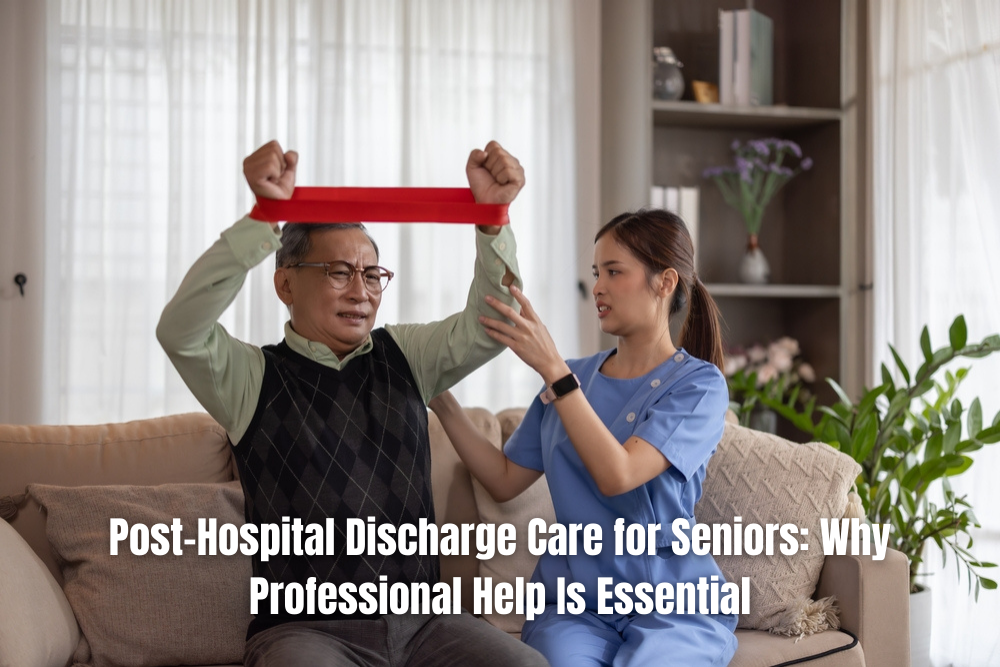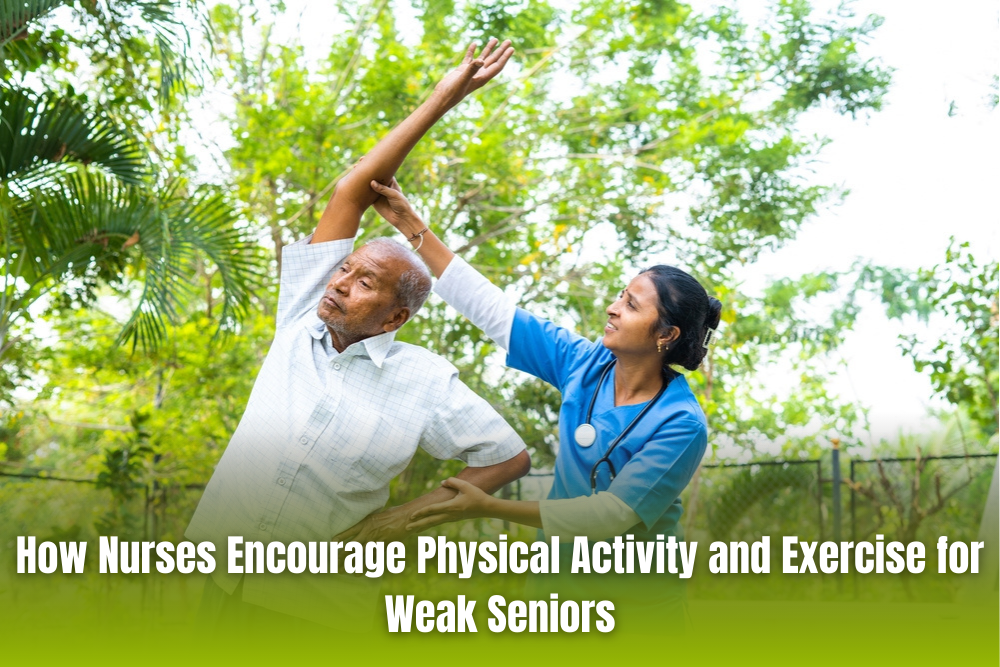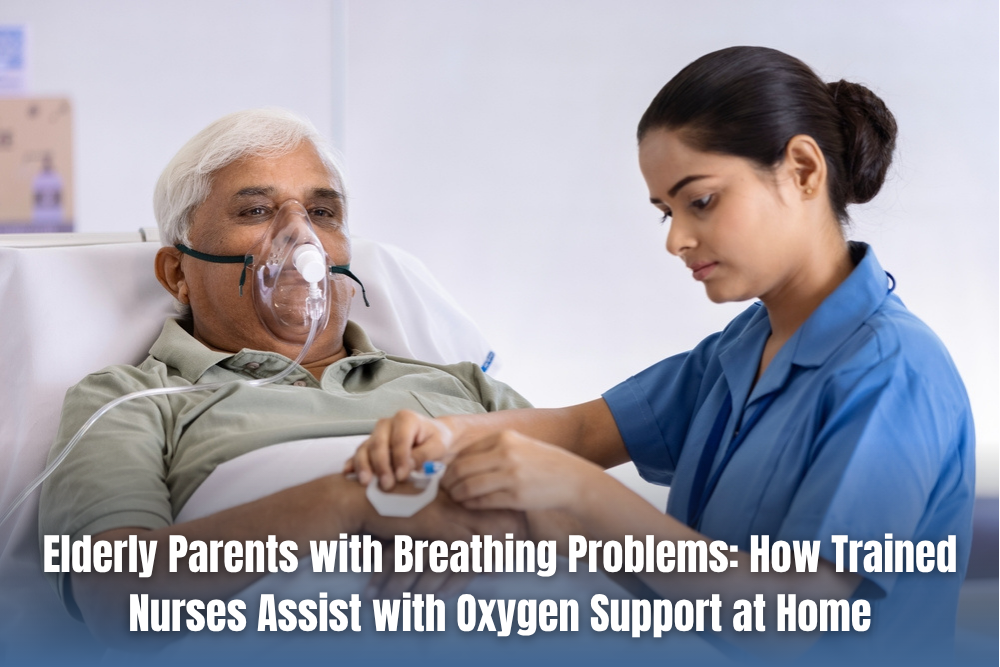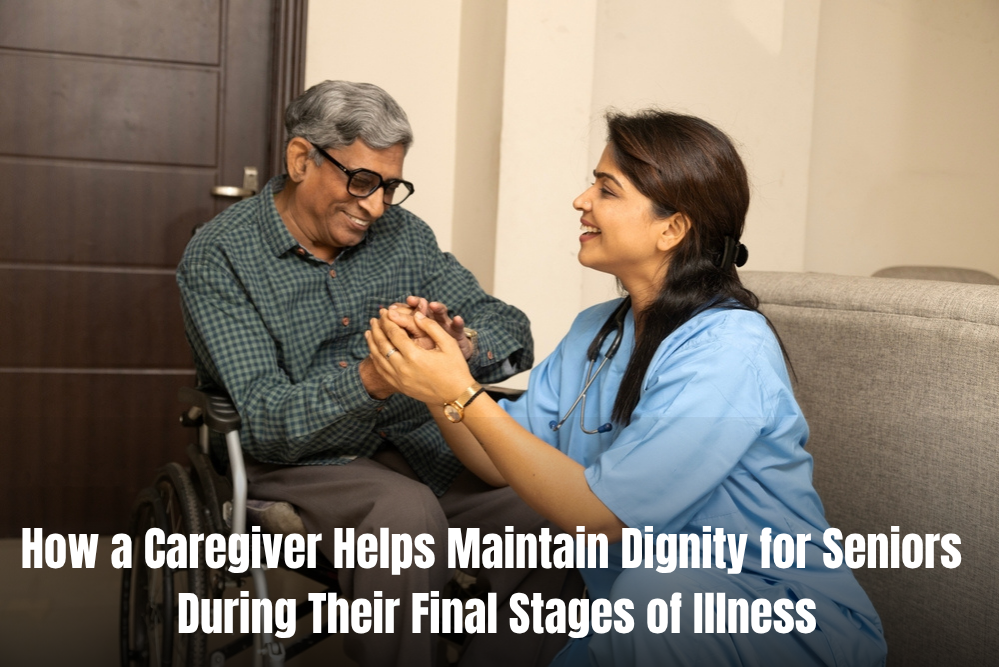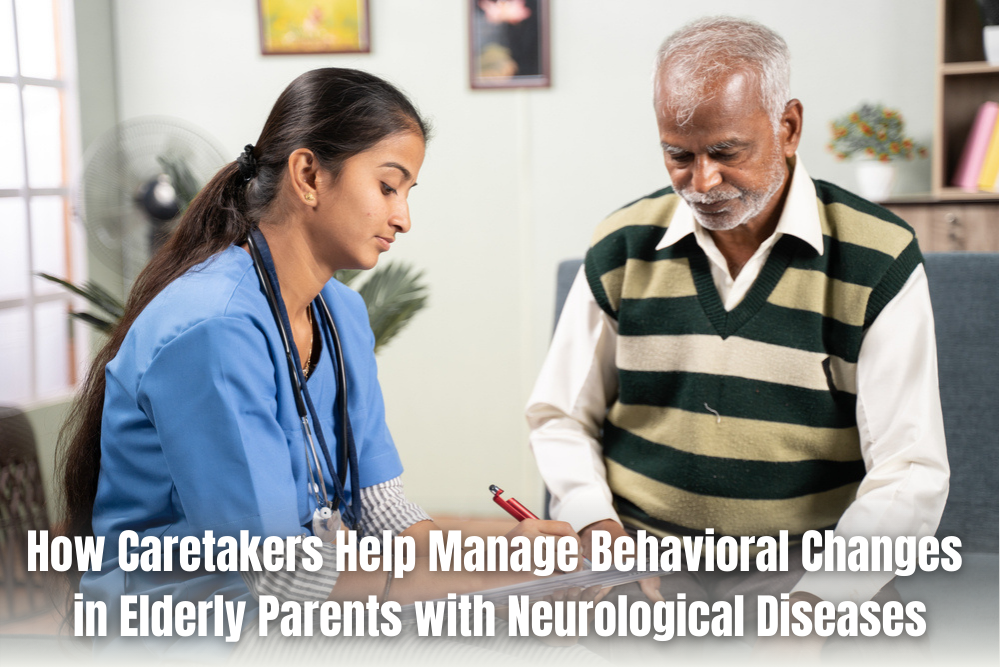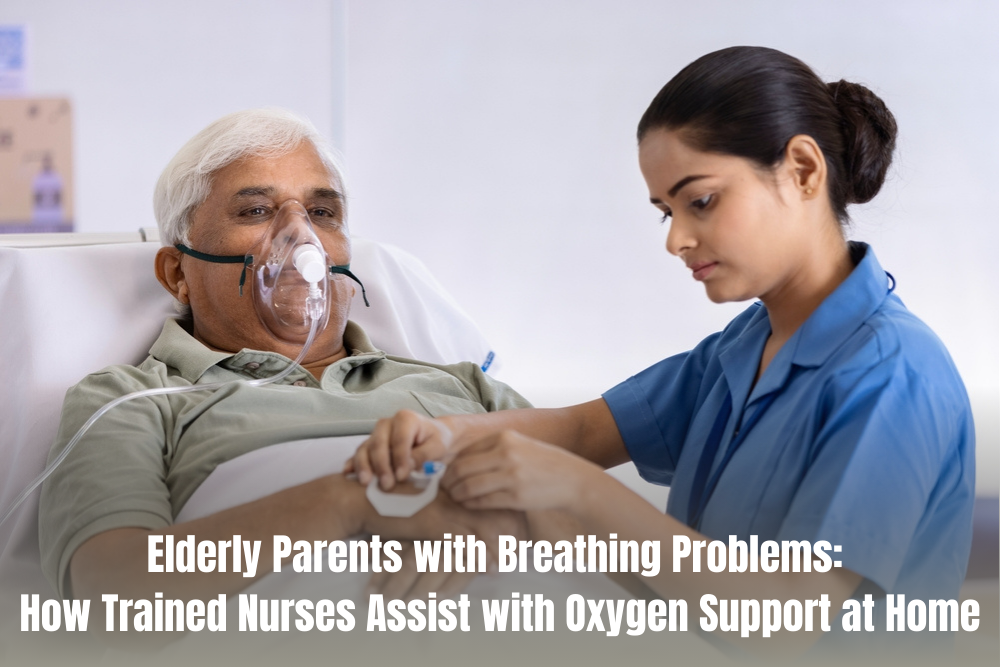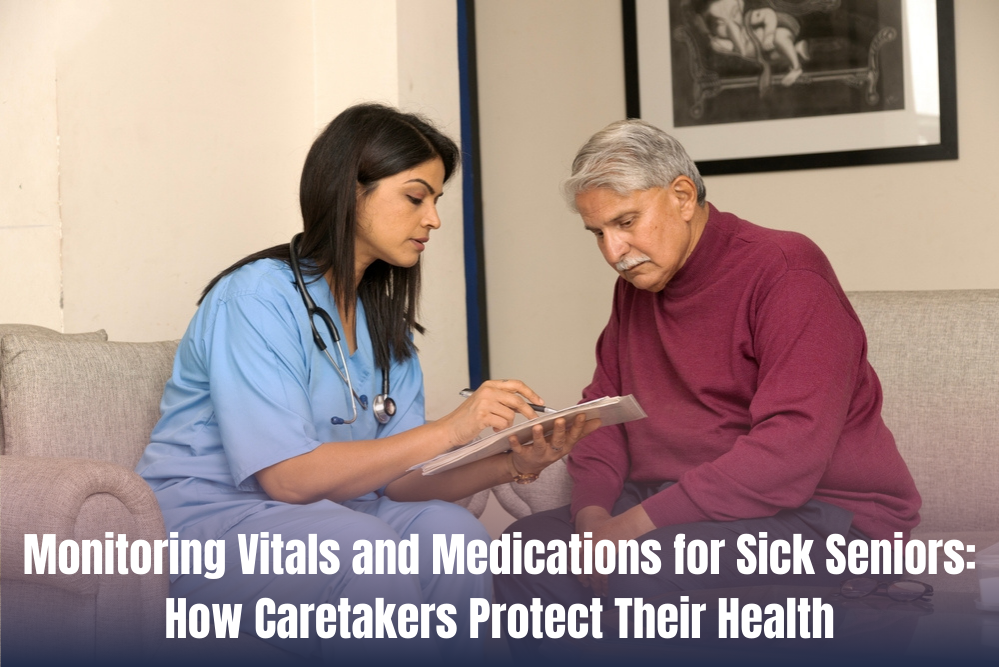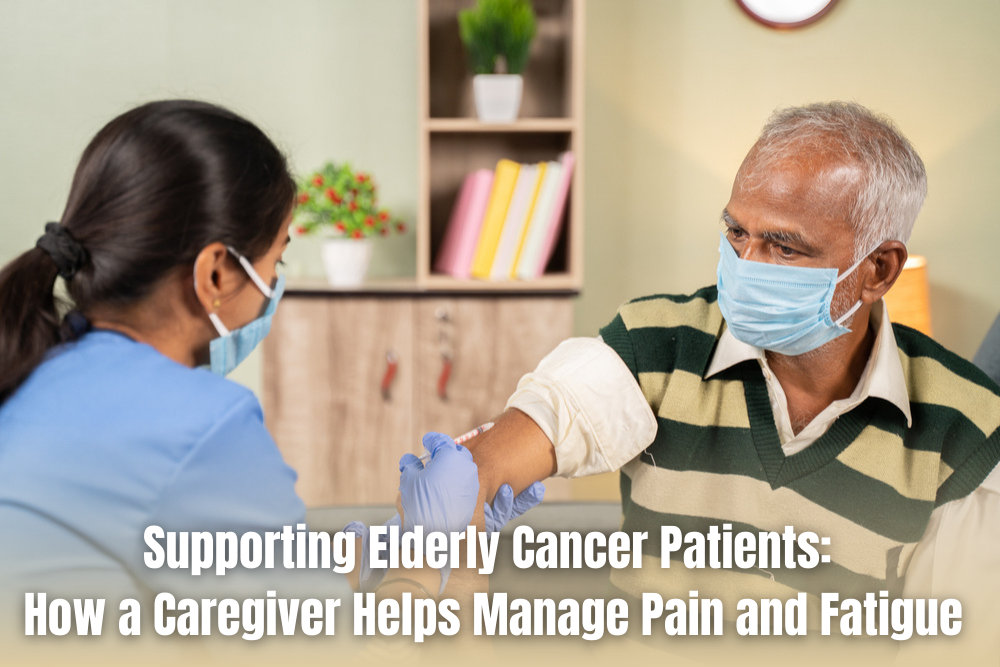Bringing your elderly parent home from the hospital feels like a relief. The surgery is done. The treatment is complete. The discharge papers are signed.
But what many families don’t realize is this, the real recovery begins at home.
The days and weeks after hospital discharge are often the most critical. Weakness, risk of infection, medication changes, mobility issues, and emotional stress can all make this period challenging. Without proper care, seniors can face complications that may lead to readmission.
This is why professional post-hospital care at home is not a luxury, it is often essential.
In this article, we’ll explain what happens after discharge, common mistakes families make, and how professional caretakers and nurses ensure safe and smooth recovery.
What Makes Post-Discharge Period So Critical?
After hospitalization, elderly parents are usually:
- Physically weak
- Emotionally drained
- On multiple medications
- At risk of infection
- Unable to move independently
- Confused due to new prescriptions or diet changes
Even simple tasks like walking to the bathroom can become risky.
Common Situations After Hospital Discharge
Professional help is especially important after:
- Hip or knee replacement surgery
- Heart procedures
- Stroke recovery
- Pneumonia or respiratory infections
- Cancer treatment
- Severe weakness due to infection
- Fractures
- ICU stays
These conditions require close observation and consistent care.
Mistakes Families Often Make After Discharge
Many families try to manage everything themselves. Some common mistakes include:
- Missing medication timings
- Improper wound care
- Ignoring early signs of infection
- Allowing too much bed rest
- Helping with movement without proper technique
- Skipping follow-up exercises
These mistakes are unintentional but can delay recovery or cause complications.
Why Professional Help Is Essential
1. Proper Medication Management
After discharge, medicines often change. A nurse or caretaker:
- Follows prescription schedules strictly
- Prevents missed or double doses
- Observes side effects
- Coordinates with doctors if needed
This reduces the risk of sudden health issues.
2. Wound and Surgical Care
For patients recovering from surgery:
- Dressings must be changed carefully
- Infection signs must be monitored
- Stitches must be handled properly
A trained nurse ensures safe healing and prevents complications.
3. Safe Mobility Support
Post-hospital seniors are at high risk of falling. Caregivers:
- Assist with walking
- Support bathroom visits
- Help with sitting and standing
- Encourage safe, gentle movement
This prevents muscle loss and builds strength gradually.
4. Monitoring Vital Signs
Professional nurses monitor:
- Blood pressure
- Blood sugar
- Oxygen levels
- Pulse and temperature
Early detection of problems prevents emergencies.
5. Emotional Support and Confidence Building
After hospitalization, many seniors feel:
- Afraid
- Depressed
- Dependent
- Low in confidence
Caregivers provide reassurance, conversation, and encouragement, helping them regain emotional stability.
6. Reducing Hospital Readmissions
Studies show that proper post-discharge care significantly reduces hospital readmissions. With trained supervision at home, recovery becomes smoother and safer.
7. Reducing Family Stress
Families often feel anxious and exhausted after hospitalization. Professional care:
- Reduces physical strain
- Allows proper rest
- Removes constant worry
- Provides expert support
This helps families focus on emotional bonding instead of constant medical tasks.
Who Should You Hire After Hospital Discharge?
Caretaker
Best for:
- Daily support
- Mobility assistance
- Hygiene and feeding
- Companionship
Nurse
Needed for:
- Injections
- Wound care
- Oxygen support
- Medical monitoring
Wardboy
Helpful for:
- Bedridden patients
- Lifting and repositioning
- Physical support similar to hospital assistance
Shree Swami Samarth Patients Seva: Reliable Post-Discharge Support
At Shree Swami Samarth Patients Seva (www.sssps.in), we specialize in post-hospital elderly care.
Our trained professionals provide:
- Post-surgery care
- ICU discharge support
- Stroke recovery assistance
- Chronic illness monitoring
- 24/7 home nursing services
- Safe mobility assistance
We ensure your elderly parent transitions from hospital to home safely and comfortably.
FAQs
Q1: How long should we keep professional help after discharge?
Usually 2–6 weeks depending on the condition, but some cases require longer support.
Q2: Can professional care prevent hospital readmission?
Yes. Proper monitoring and early detection reduce complications.
Q3: Is home care better than keeping the patient in hospital longer?
Yes, if the patient is stable. Home offers comfort and lower infection risk, provided professional support is available.
Q4: What if my parent refuses outside help?
Most seniors adjust once they feel respected and supported by trained caregivers.
Conclusion
Hospital discharge does not mean recovery is complete. In fact, it is the most sensitive phase of healing.
Professional post-discharge care ensures:
- Safe recovery
- Reduced complications
- Faster strength rebuilding
- Emotional reassurance
- Peace of mind for families
At Shree Swami Samarth Patients Seva, we stand with families during this critical time — offering skilled, compassionate support when it matters most.
Because recovery doesn’t end at discharge. It begins at home.


